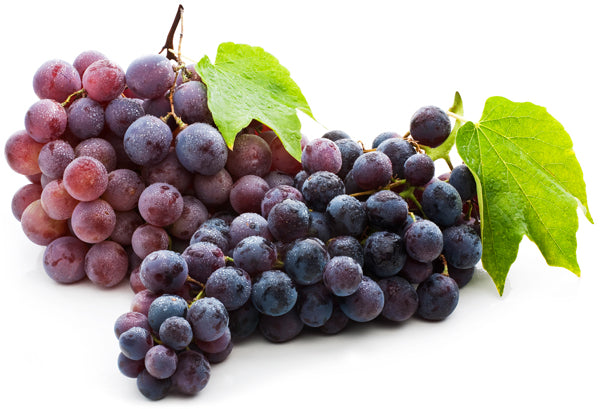The Health Benefits of Grapes
April 12, 2023 – Steve Bruner

Grapes are more than just a delicious fruit - they are also a source of valuable secondary metabolites that have numerous health benefits. These bioactive compounds, such as polyphenols, lavonoids, and anthocyanins, are found in fresh grapes, raisins, and processed grape products like wine, juice, and jelly. Grape seed nutraceuticals have been used in the pharmaceutical, food, and cosmetic industries due to their potential cardioprotective, anti-cancer, antioxidant, anti-inflammatory, antiviral, neuroprotective, hepatoprotective, and antimicrobial properties.
Nutraceuticals from grape seeds have recently been reinvented as a new paradigm in human medicine. They have been used to stop wound bleeding, as anti-inflammatory agents, pain relief, and anti-diarrhea. They have also been used to treat various human health conditions such as cancer, cholera, smallpox, nausea, eye infections, skin diseases, kidney diseases, liver diseases, and more. Consumers are increasingly seeking out natural supplements and personal care products with natural ingredients, making grape seed nutraceuticals an exciting area for future development.
The history of grape production and winemaking is a long and rich one, with evidence of winemaking dating back thousands of years. Today, grape production and winemaking methods have advanced significantly, with high demand for quality atributes such as wine color, flavor, and chemical composition of phenolic compounds driving research and development.
Grape seeds contain numerous polyphenol-rich phytochemicals that are beneficial to human health. These include proanthocyanidins, lavonoids, anthocyanins, hydroxycinnamic acids, hydroxybenzoic acids, and vitamin E. These secondary metabolites are responsible for the blue, purple, and red colors in many plant tissues. The polyphenols from grape seeds act as potent antioxidants that can protect the body from a wide range of health conditions such as premature aging, numerous diseases, and decay.
Moderate wine consumption has been associated with reduced mortality from coronary heart disease due to its high-density lipoprotein (HDL) cholesterol content, which inhibits platelet aggregation. The antioxidant effects of red wine and its major polyphenols have been demonstrated in many experimental systems, from in vitro studies to animal models and healthy human subjects.
In conclusion, grapes are a versatile fruit that offer a wealth of health benefits. Grape seed nutraceuticals have been used in various industries and have potential applications in human medicine. The history of grape production and winemaking is a long and rich one, with high demand for quality driving continued research and development. The polyphenols found in grape seeds act as potent antioxidants and offer numerous health benefits. Moderate wine consumption has also been associated with reduced mortality from coronary heart disease. With their diverse range of applications, grapes and grape seed nutraceuticals are sure to remain an important subject of research and development in the years to come.
